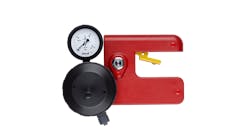"The Business Value Proposition of Control in the Field” is the title of a new white paper from ARC which was presented by the Fieldbus Foundation at the recent SPS/IPC/DRIVES exhibition in Nuremberg, Germany. Control in the Field (CIF), based on function blocks which can reside either in a DCS, in field devices or both, is the key differentiator between Foundation fieldbus and the other two most popular process fieldbuses, Profibus PA and HART. However, while Foundation fieldbus adoption has, in ARC’s words, "skyrocketed" in recent years, CIF remains a comparative rarity.
Suspicion
Surprisingly, perhaps, most users adopt Foundation fieldbus for the same diagnostic and asset management capabilities which they could find equally well in Profibus PA or HART, rather than for its CIF capabilities. The latter are apparently still regarded with suspicion as potentially compromising reliability and availability, while offering little economic or business advantage. The purpose of the white paper is to demonstrate that the direct opposite is in fact the case. CIF can in fact provide higher levels of integrity and superior performance while reducing both capital and operational costs.
Much of the argument in favour of CIF is based on work performed by Glasgow, U.K.- based Industrial Systems & Control (ISC) on behalf of the Applied Control Technology Consortium (ACTC). ISC's study focused on performance benefits, however, and the aim of the white paper is to translate that and the work of other groups, such as Shell Global Solutions International (SGSI,) into a business value proposition.
A number of possible scenarios are considered ranging from what might be called pure or 'ideal' CIF to the use of CIF as a back up to the DCS. As well as performance advantages achieved as a result of reduced communications loading and latency, CIF could, in some cases, provide a lower cost alternative to a conventional safety system. The white paper also identifies potential opportunities for reductions in installed cost as a result of reduced hardware requirements and in operational costs as a result of improved reliability and availability through a claimed 80% improvement in MTBF compared with conventional DCS control. In addition, while Foundation fieldbus has built its main power base in the refining and petrochem industries, a number of other application areas, including pulp and paper, power generation, combustion control and compressor control are identified where CIF could offer significant business benefits.
ARC concludes that CIF is capable of providing performance benefits for most regulatory control loops for pressure and flow applications and that embedding control functionality in field devices can be a key enabler for high-availability control and provide a stepping stone towards achieving the holy grail of single-loop integrity. And it adds that those who have adopted CIF have already demonstrated how unplanned downtime can be avoided by allowing field level control to take over when other elements of the control system have failed. The complete white paper can be downloaded from the Foundation web site at www.fieldbus.org



